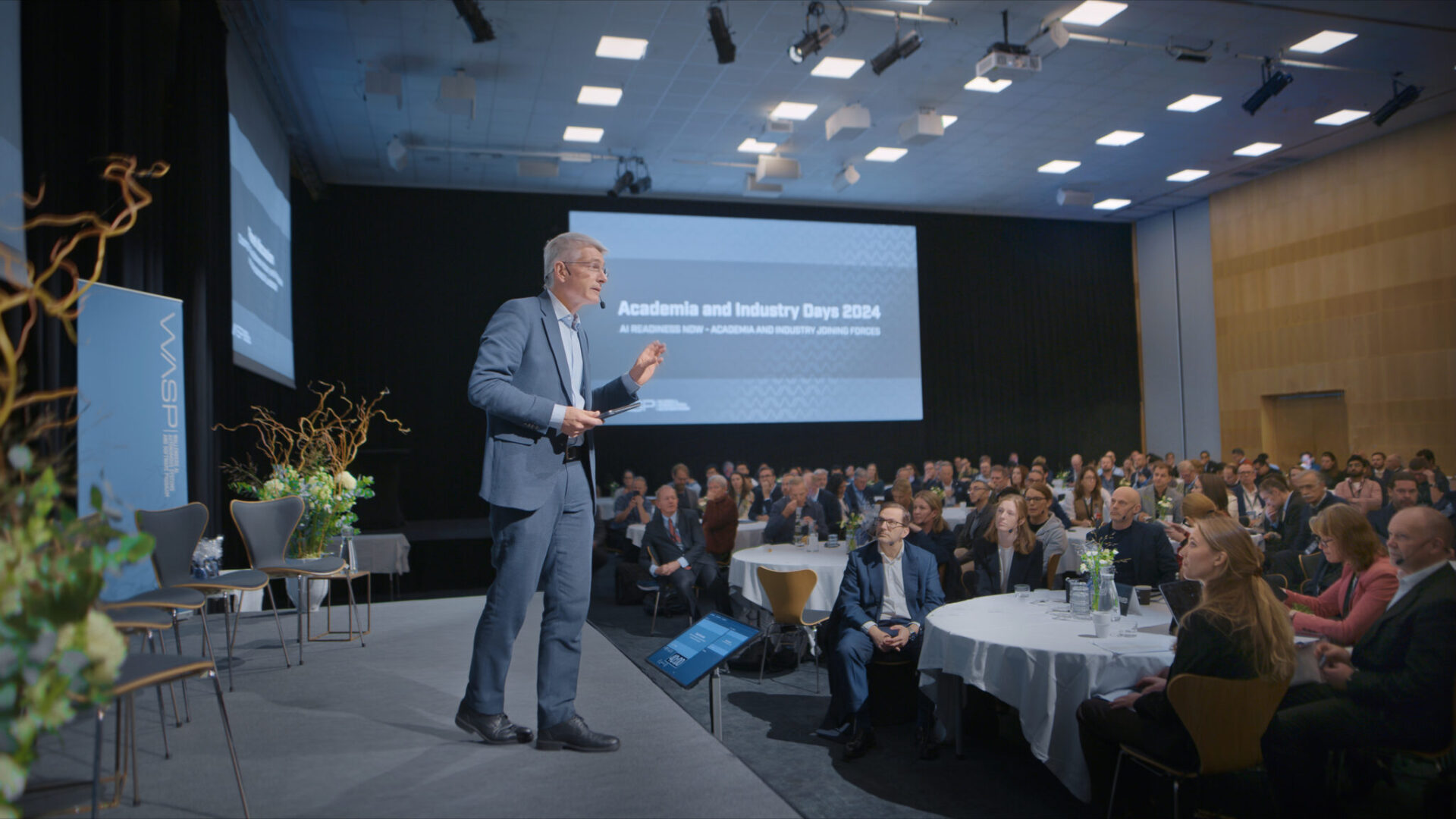In a rapidly evolving technological landscape, the conference Academia and Industry Days 2024 brought together industry leaders, academic experts, WASP PhD students, and public sector representatives to discuss the future of AI in Sweden.
The two-day event on October 24-25 generated lots of innovative ideas, with a strong emphasis on collaboration, unique national strengths, regulatory challenges, and the critical need for competence in AI.
One of the most pressing themes of the conference was the necessity of collaboration between academia and industry. For Sweden to position itself as a leading nation in AI, it is essential to foster strong partnerships between industry, academia, and other stakeholders.
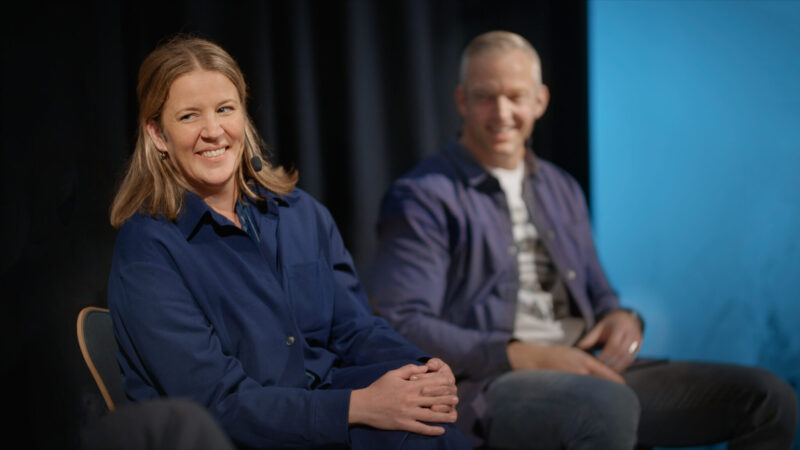
The fireside chat “How to Successfully Build and Maintain Industrial Research Departments”. From left: Salla Franzén (Navigare Ventures) and Gustav Söderström (Spotify). Photo: Peter Karlsson, Svarteld form & foto
Closing the gap
In the panel “Closing the Gap Between Industry and Academia in the Accelerated AI landscape” led by Erik Ekudden, CTO at Ericsson, collaboration was put forth as the cornerstone for driving innovation and ensuring that AI development is both cutting-edge and ethically sound.
–Together, we are stronger than two fields individually, says Karin Stacke, Researcher at Sectra and WASP alumni, who participated in the panel.
The consensus of the panel was clear: only through a united effort can Sweden harness the full potential of AI technologies.
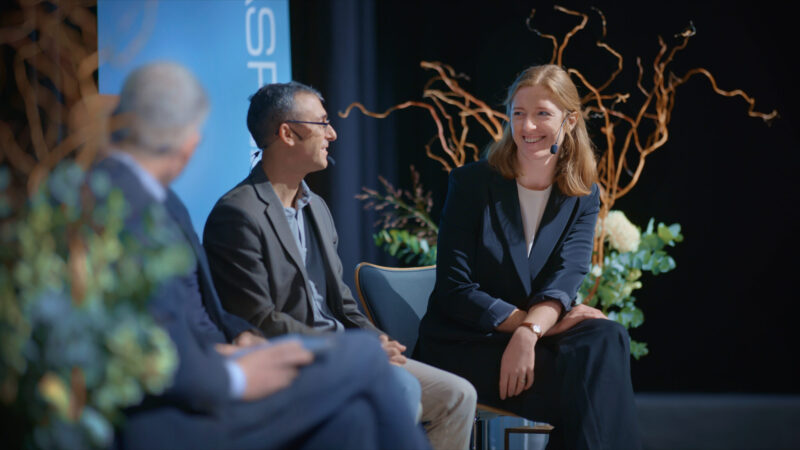
The panel “Closing the Gap Between Industry and Academia in the Accelerated AI landscape”. From left: Stas Krupenia (Scania) and Karin Stacke (Sectra). Photo: Peter Karlsson, Svarteld form & foto
Leveraging Sweden’s unique strengths
Giving a glimpse of the most important findings from the Swedish AI Commission’s report, Carl-Henric Svanberg, Chair of the commission, declared:
– We need vision, leadership and courage.
While there is much to learn from AI advancements in the United States, Sweden’s unique strengths should not be overlooked. The country prides itself on responsible data management, trust towards authorities and high acceptance of digitalisation. By leveraging these strengths, Sweden can carve out a niche that emphasizes trust and responsibility in AI development, setting a global standard for others to follow.

The fireside chat “The Swedish AI Commission”. From left: Danica Kragic (WASP Co-director) and Carl-Henric Svanberg (Swedish AI Commission). Photo: Peter Karlsson, Svarteld form & foto
Several speakers also addressed the regulatory landscape, which poses challenges to AI development in Europe. There is a growing concern that current regulations may hinder innovation rather than promote it. Participants discussed the need for a balanced approach that protects public interests without stifling technological progress. The dialogue underscored the importance of adaptive regulations that can evolve alongside AI technologies.
Investment in AI talent is crucial
A recurring topic was the urgent need for highly skilled AI experts. The 600 PhDs expected to graduate from WASP are a welcome addition to Sweden’s talent pool. However, the demand for expertise far exceeds this supply, highlighting the need for continued investment in education and training. The conference emphasized that building a robust pipeline of AI talent is crucial for both the private and public sectors to thrive.
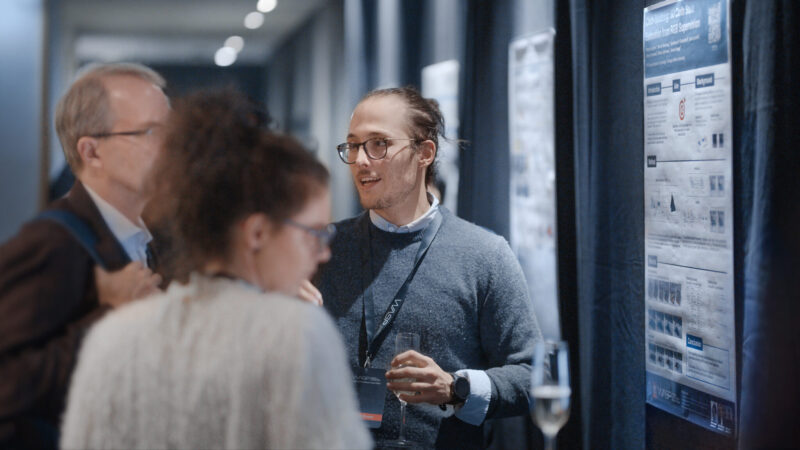
WASP PhD student Marcel Büsching (KTH) presenting his poster during the poster session. Photo: Peter Karlsson, Svarteld form & foto
Facilitating cross-sector forums
The workshop sessions, led by some of the most innovative Swedish companies, shows that the interest in academia and industry collaboration is big. Here, the potential for initiatives like the WASP research arenas (WARA) is huge. Also, the industrial PhD and industrial postdoc programs play a crucial role to bridge the gap between academia and industry. The distance between research and implementation has never been shorter than now.
As Sweden continues to navigate the complexities of AI development, collaboration and an open mindset will be essential in shaping a future where AI serves the greater good.
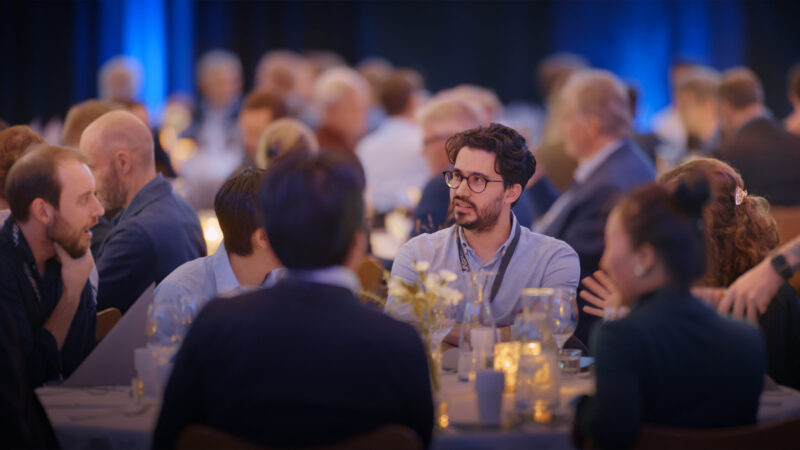
Conference participants at the dinner. Photo: Peter Karlsson, Svarteld form & foto
Thank you to everyone that participated in the conference and to the companies that hosted workshops. Let’s continue the discussions and collaborations from this event forward!
Speakers and panelists
- Marcus Wallenberg, Chair of Wallenberg Investments
- Sara Mazur, Executive Director of Knut and Alice Wallenberg Foundation
- Carl-Henric Svanberg, Chair of the Swedish AI Commission
- Erik Ekudden, CTO at Ericsson
- Karin Stacke, Researcher at Sectra and WASP alumni
- Christoffer Petersson, Technical Expert in Deep Learning at Zenseact
- Stas Krupenia, Head of Research Office at Scania
- Daniel Akenine, CTO at Microsoft Sweden
- Salla Franzén, Investment Manager at Navigare Ventures
- Gustav Söderström, Co-president and CTO at Spotify
- Nicolas Moch, Head of SEBx
- Alexandra Kafka Larsson, CEO and founder of Parsd
- Mats Agervi, CEO and founder of Combient
- Danica Kragic, WASP Co-director and professor at KTH Royal Institute of Technology
- Fredrik Heintz, WASP Graduate School Co-director and professor at Linköping University
- Amy Loutfi, WASP Co-director and professor at Örebro University
- Anders Ynnerman, WASP Program Director and professor at Linköping University
- Johanna Björklund, Project Manager WARA Media and Language and associate professor at Umeå University
- Jesper Tordenlid, Project Manager WARA Public Safety
- Matteo Iovino, Project Manager WARA Robotics
- Johan Eker, Co-project Manager WARA Operational Data and professor at Lund University
Workshop companies
ABB, AstraZeneca, Boliden, Epiroc, Ericsson, H&M, Saab, Scania, SEB, Sectra, Microsoft, Nvidia, Parsd, Recorded Future, Volvo Cars and Zenseact.
Video
Read more about WASP Research Arenas
Published: November 27th, 2024
[addtoany]

